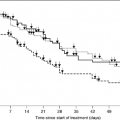Research Issues: Ethics and Study Design
Jodi Levinthal
David Casarett
The goal of good palliative care is to relieve suffering and to improve quality of life. However, it is apparent that access to palliative care is inconsistent, and standards to guide palliative care have not been established clearly. These deficiencies exist, at least in part, because of a lack of solid evidence on which to base clinical decisions (1, 2, 3). Therefore, there is an urgent need for research that can provide evidence to define the standard of care and to increase access to quality care.
Recent years have seen a dramatic increase in palliative care research, defined broadly as activities that are designed to contribute to generalizable knowledge (4) about end-of-life care. This growth has created a heterogeneous field that encompasses both qualitative and quantitative techniques, and descriptive as well as interventional study designs (5). Although the past 10 years have seen impressive growth in all of these areas, this rate of growth appears to be particularly rapid for interventional research, including controlled trials of pain medications (6, 7), interventional procedures for pain (8), and other nonpharmacologic interventions to improve a variety of aspects of end-of-life care (9, 10, 11, 12, 13).
Despite the valuable knowledge that has been produced by this research, and the promise of important advances in future, its progress has been slowed by a persistent uncertainty about the ethics of these studies (14). Indeed, there have been concerns raised from several quarters about whether patients near the end of life should ever be asked to participate in any form of research (15, 16). Others have objected to this extreme position (2, 17). Nevertheless, many providers, Institutional Review Boards (IRBs), ethics committees, study sections, and even investigators remain uncertain about the ethical limits of research involving dying patients.
These concerns have considerable intuitive appeal, and must be taken seriously. Indeed, it would be unfortunate if the progress of palliative care research were slowed by the sorts of ethical scandals that have threatened other fields of research that involve vulnerable populations, such as those with mental illness (18). However, strict overseeing and tight limits on palliative care research have the potential to do equal damage to the growing field. Therefore, in order to avoid potential scandals, without excessive regulation and overseeing, it will be important that palliative care investigators and clinicians consider these concerns in a fair and balanced way.
This chapter discusses six ethical aspects of palliative care research that investigators and clinicians should consider in designing and conducting palliative care research. These include the following:
Whether the study is research or quality improvement
The study’s potential benefits to future patients
The study’s potential benefits to subjects
The study’s risks to subjects
Subjects’ decision-making capacity and
The voluntariness of subjects’ choices to participate in the research
Each of these is discussed, as well as the opportunities for each to enhance the ethics of palliative care research.
Defining Research
The first, and arguably the most important question that palliative care investigators face in designing an ethical study is whether it is research or Quality Improvement (QI). This decision is extremely important, and has profound implications for the study’s design, and the ethical standards to which it will be held. For instance, federal law requires most research projects to be reviewed by local IRBs to assure that informed consent is obtained from each subject, that research risks are reasonable in relation to expected benefits, and that the subjects are recruited in an equitable fashion (4). In comparison, there are few widely accepted standards that govern QI.
In many situations, it is clear that a planned study is research. For instance, there is likely to be general agreement that randomized clinical trials comparing one or more pain medications, or population-based studies of symptom prevalence are research, and should be held to the ethical standards for research. However, QI activities often share many of the attributes of research. For instance, both QI and research involve systematic data collection methods, such as surveys and chart reviews. Both apply statistical methods to test hypotheses, establish relationships between variables, and to evaluate outcomes. Both QI and research are designed to produce knowledge that could benefit patients other than those directly involved in the activity. In practical terms, therefore, QI and research activities are often difficult to distinguish. This can produce confusion and conflicting opinions from IRBs that review study protocols (19).
Unfortunately, the federal regulations that make the distinction between research and QI so important offer little practical assistance in distinguishing between the two types of activities. In those regulations, research is defined as “a systematic investigation, including research development, testing and
evaluation, designed to develop or contribute to generalizable knowledge” (4). Although elegant in its simplicity, this definition may prove prohibitively difficult for palliative care investigators to apply. It is often not clear how systematic an activity needs to be in order to be considered research. Nor is it clear how generalizability should be defined, or how an investigator’s intent should be measured.
evaluation, designed to develop or contribute to generalizable knowledge” (4). Although elegant in its simplicity, this definition may prove prohibitively difficult for palliative care investigators to apply. It is often not clear how systematic an activity needs to be in order to be considered research. Nor is it clear how generalizability should be defined, or how an investigator’s intent should be measured.
In an effort to make the distinction between QI and research clearer, additional criteria have been proposed. These include: the degree to which a study deviates from standard care, whether an activity requires identifiable recruitment practices, how individuals are selected to receive a particular intervention, the degree of uncertainty associated with the intervention, and whether the patients involved benefit from the knowledge to be gained (20, 21, 22). One of the most recent of these efforts (21) describes a two step algorithm that investigators may find useful when the existing criterion of an intent to produce generalizable knowledge (4) fails to provide adequate guidance. This algorithm is based on the additional risks or burdens that are imposed by a study, and on whether the patients involved in the study will benefit from the knowledge to be gained. Briefly, this algorithm suggests that studies should be considered as research, rather than as QI, if they expose patients to risks in order to generate knowledge that will not benefit them.
This algorithm may prove to be too restrictive, as some have argued (22). In any event, it should not take precedence over existing federal regulations (4). It is at most a guide that palliative care investigators may wish to turn to. When the status of a project is unclear, investigators should also seek guidance from their own IRB.
Benefits to Future Patients: A Study’s Validity and Value
Palliative care research is designed to produce knowledge that will advance understanding of end-of-life care. Implicit in this goal is the expectation that this knowledge will eventually improve care for future patients. Therefore, the first ethical aspect of palliative care research that deserves consideration is its potential benefits for future patients. These benefits to others can be described in terms of validity and value.
Validity
First, all studies must be valid. That is, they must use techniques of design and data analysis that peer reviewers can agree as appropriate. In addition, all studies must be designed to produce knowledge that is generalizable. Indeed, generalizability is the cornerstone of the Common Rule’s definition of research: “a systematic investigation, including research development, testing, and evaluation, designed to develop or contribute to generalizable knowledge” (4). These requirements collectively describe a study’s validity (23). Validity is a threshold requirement for all research, because it is unethical to expose human subjects to risks in studies that peer reviewers agree cannot adequately answer a research question (24). Therefore, at a minimum, investigators must routinely consider a study’s validity.
Value
Above this threshold of validity, palliative care studies may offer more or less importance or “value.” Broadly, value can be defined as the likelihood that a study’s results will improve the health and well-being of future patients (25). Like validity, value is an important measure of a study design’s scientific quality, but it is also a measure of its ethical quality. Value is an essential aspect of a study’s ethical design because a central goal of research is to produce knowledge that will ultimately be “important” (4, 26), “fruitful” (27), or “valuable” (28). In fact, one reason that subjects participate in clinical research is to produce knowledge that will benefit others (29, 30). Because subjects are willing to accept risks and burdens of research at least in part in order to benefit others, investigators have accepted an ethical responsibility to maximize the probability that a study will be able to do so. Therefore, in addition to widely accepted scientific arguments for valuable research, there are compelling ethical arguments as well.
Maximizing Validity and Value in Palliative Care Research
Space does not permit a comprehensive overview of ways in which a palliative care study’s validity and value can be assessed and improved. Indeed, such a discussion moves quickly beyond ethics and into the technical language of study design and health measurement. Nevertheless, several broad recommendations are possible.
First, a study’s sample size should be adequate to answer the research question that is posed. Problems of underpowered studies, and particularly clinical trials, are both widespread and well described (31). But issues of power and sample size are particularly relevant to pain and symptom research, in which random variation can be quite large (32). To minimize these problems, it may be useful to establish consortia or collaborative groups that can participate in multicenter studies. Such arrangements have been highly effective in promoting research on rare disorders, and may be applicable to palliative care research as well, in which investigators are limited and available patients are often sparse.
Second, palliative care investigators can enhance the ethical quality of a study by taking reasonable steps to increase the generalizability of its results. These steps might include sample size calculations that permit subgroup analysis of groups of patients that have typically not been the focus of investigation, such as patients with noncancer diagnoses, or elderly patients. The generalizability of a study’s results might also be enhanced by recruiting subjects outside academic medical settings, because preliminary evidence suggests that these patients, and their needs for care, may be different than those who receive care in academic settings (33).
In addition, palliative care investigators can enhance the generalizability, and therefore the value, of their research by making reasonable efforts to include patients who are receiving care at home, and particularly those who are enrolled in a home hospice program. Substantial barriers may make it difficult to include these patients in research. Nevertheless, few data exist to guide the management of home care patients near the end of life, and palliative care investigators can enhance the value of their research by including this population whenever possible (34).
Of course, all of these improvements in generalizability come at a substantial cost. For instance, studies that recruit subjects from several different settings require more elaborate designs for recruitment and follow-up. In addition, investigators who include plans for subgroup analysis in their sample size calculations face rapidly escalating sample size requirements and costs. Nevertheless, steps such as these offer an important way to enhance the value of a palliative care study, and therefore its ethical quality. Therefore, it will also be important that funding agencies understand the ethical importance of generalizability, and that generalizability comes with a financial cost.
Benefits to Subjects
Palliative care investigators can also enhance the ethical rigor of a study by maximizing the benefits that it will offer to subjects. Broadly, these benefits can be considered under two categories: benefits to subjects during the study and benefits to future patients from the data that are collected. Each of these is discussed in the subsequent text.
Benefits to Subjects during the Study
Investigators may have several opportunities to maximize potential benefits of research to the subjects who participate. Perhaps the first, at least in an interventional study, is in their choice of an intervention. Ideally, a new intervention to be studied should have a reasonable chance of success. More important, though, if it is to offer subjects a significant potential benefit, an intervention should offer the possibility of a meaningful improvement over other interventions that are available to subjects outside the study. For instance, a pain management algorithm that is expected to reduce cancer pain (35) would only offer potential benefits if it is qualitatively or quantitatively different than those that constitute the usual standard of care. On the other hand, a comparison of two medications that are commercially available, such as topical fentanyl and sustained release morphine would not offer subjects any potential benefit. This is true even if the study’s results offer considerable clinical value (36).
The potential benefits of a study can also be enhanced by choosing an active control design, rather than a placebo (36). If a placebo is used, a study’s potential benefits can also be improved by altering the standard 1:1 randomization scheme in a placebo-controlled trial in a way that increases the subjects’ chances of receiving an active agent (7). The potential benefits of a placebo-controlled trial can also be enhanced by using a crossover design, so that all subjects are offered potential benefits, if the medication’s pharmacokinetic profile makes it possible to avoid carryover effects.
These suggestions should be tempered by two caveats. First, the potential benefits of research are never certain. If they were, a randomized trial would not be ethically acceptable. That is, a legitimate argument for the uncertainty that justifies a clinical trial, or equipoise, could not be made (37). However, investigators generally design studies of interventions for which there is at least some evidence of effectiveness. Therefore, although these potential benefits are not certain, they are more or less likely, and this assessment of likelihood should be considered in the design of pain research.
Second, palliative care studies need not always offer potential benefits. Indeed, many, and perhaps most, will not. Nevertheless, when a study does offer potential benefits, investigators may consider enhancing a study’s potential benefits in these ways. The importance of doing so is particularly great if other aspects of a study raise ethical concerns, which might be the case if subjects’ decision-making capacity is limited, or if the study’s risks are substantial.
Benefits from Data Collected During a Study
Although the opportunities to enhance potential benefits described in the preceding text apply largely to studies involving interventions, another opportunity applies equally well, if not better, to research that is descriptive. A common ethical issue in the design of palliative care research, and particularly descriptive research, is the possibility that data gathered may contribute to a subject’s care. For instance, data gathered during a descriptive study may identify pain that is inadequately treated (38, 39, 40), dissatisfaction with pain management (41, 42), or related clinical problems such as depression (43, 44).
In anticipation of instances such as these, investigators can design standard operating procedures that help to ensure that valuable clinical information is made available to the subject and his/her clinicians. At the least, these procedures should include data about the presence of unrecognized and untreated symptoms, and concurrent disorders like depression. This is arguably an ethical obligation of symptom-oriented research (17). Moreover, these procedures offer a significant opportunity for investigators to enhance the potential benefits of pain research.
Stay updated, free articles. Join our Telegram channel

Full access? Get Clinical Tree







